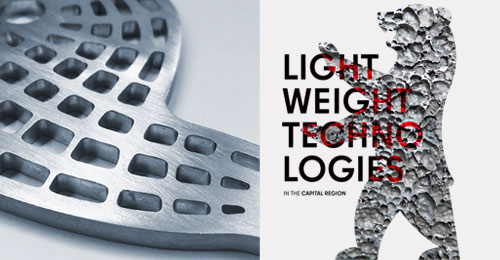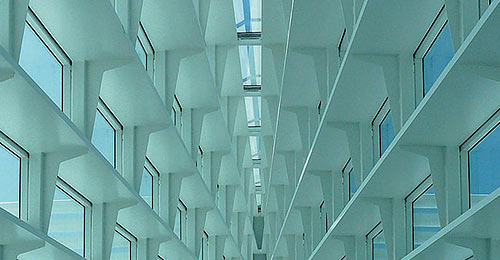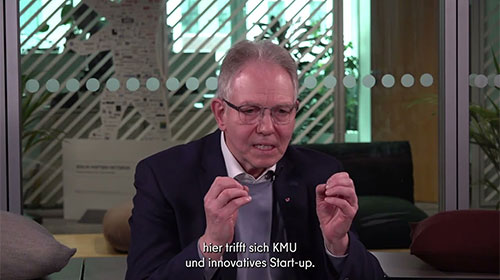Lightweight construction in Berlin
Functional integration and the use of lightweight materials offer cost-effective and flexible alternatives for a wide range of industries.
Lightweight construction is a key technology for Germany and a driving force for key sectors of Berlin's industry – from transportation and transport to medical technology, aerospace, and construction. Lightweight construction offers great potential along the entire value chain: from design and material selection to recycling. Materials account for 43.2 percent of costs in the manufacturing industry – already 22 percent of SMEs in Germany rely on lightweight materials.
(Source: Federal Ministry for Economic Affairs and Energy, 2023)
Berlin scores highly in lightweight construction with strong materials research and an excellent innovation landscape. The focus is on the mobility sector – automotive and rail vehicles –but medical technology is also represented at the location with SMEs and international players.
Numerous networks promote the transfer of innovation between industry and science. The capital region offers great potential for future development priorities, particularly in the field of new composite materials. In addition, Berlin has extensive expertise in other key technologies such as additive manufacturing and digitization due to its high density of companies and research institutions.
The diversity of stakeholders – from industry and startups to research institutions and associations – demonstrates the strength of the regional value chain. It covers all aspects of lightweight construction:
- Research and development
- Design software
- Production of semi-finished products
- Material suppliers
- Global networks for professional 3D printing and composite materials
Lightweight construction – a cross-cluster technology of the future for Berlin and Brandenburg
The capital region networks its growth industries in clusters that work closely together. In the innovation strategy of both countries, lightweight construction is anchored in the master plans of the clusters Transport, Mobility & Logistics, Healthcare, Metals, and Plastics & Chemicals – in the VML cluster, it is one of the central innovation topics alongside Additive Manufacturing.
Berlin-Brandenburg Lightweight Construction Initiative
Since 2023, the Berlin-Brandenburg Lightweight Construction Initiative has been emphasizing the importance of lightweight construction for the future of the industrial location. The aim is to raise the profile of the capital region as a center for the lightweight construction industry – through joint, cross-cluster activities, the presentation of competitive companies, and events at international trade fairs such as JEC World in Paris, ILA, and InnoTrans.






